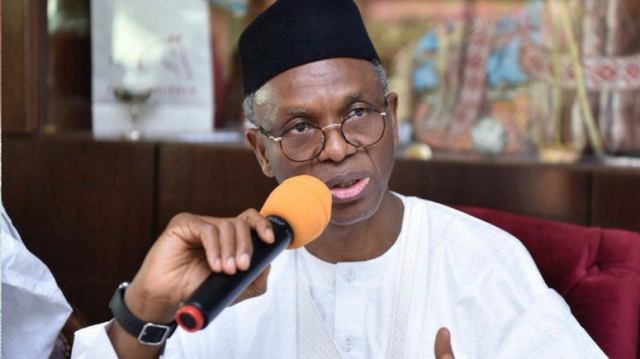The Kaduna state government has announced an increase of tuition fees in all its tertiary institutions to enable them to deliver quality skills and training required to tackle 21st-century challenges.
The institutions include Kaduna State University (KASU); Nuhu Bamali Polytechnic, Zaria; Kaduna State College of Education (COE), Gidan Waya; Shehu Idris College of Health Sciences, Makarfi; and Kaduna State College of Nursing and Midwifery.
According to NAN, Shehu Makarfi, the state commissioner for education, broke the news in Kaduna on Monday.
Makarfi explained that the government had pegged a minimum fee to be charged in the institutions.
The commissioner also said the state government, however, directed managements of the institutions to determine what students in humanities, sciences, residents, and non-residents could pay.
He said KASU had been directed to increase the tuition fees from between N24,000 and N26,000 to a minimum consolidated fee of N150,000.
He added that the minimum fees for national diploma (ND) and higher national diploma (HND) programmes had been pegged at a minimum of N75,000 and N100,000 respectively.
The commissioner also said that the national certificate in education (NCE) programmes in COE Gidan Waya was equally increased to N75,000.
He said that the tuition fees were reviewed upward in line with current realities and for the institutions to be able to improve performance in Information Technology (IT) and research to meet global demand.
“We want our tertiary institutions to offer courses like IT, cyber security, artificial intelligence, satellite technology and other skills that are in high demand globally,” he said.
“Government is ready to invest resources in tertiary institutions as long as they are ready to go along with the dynamics in society and the world at large.”
Makarfi added that the Nigerian constitution, the national and the Kaduna state education policies, have provided for free and compulsory basic education.
The commissioner said the state government is currently providing free education from pre-primary to senior secondary schools, but noted that tertiary education has to be paid for because there is nowhere in the world that it is free.
“In 2005, KASU management proposed over N60,000 as tuition fee, but the government at that time said indigenes should pay between N24,000 and N26,000, while the government augments the balance annually,” he added.
“The government was only able to pay the balance for the first two years and had to stop, leaving the university in a deep financial crunch.”
He pointed out that KASU management was finding it difficult to run the school due to inadequate funds.
He stressed that the N26,000 tuition fee in the 21st century was grossly inadequate to generate the needed funds to run the school, improve facilities and capacity to accommodate more students and deliver the best of training and research.
The commissioner further noted that KASU could not accommodate the quantum of students that applied for various programmes in the institution due to issues of carrying capacity.
He said that most of the applicants were being forced to go to alternative institutions, particularly private universities, where they pay a minimum of N750,000 as tuition fee.
“So, why don’t we create an enabling environment, increase the carrying capacity of KASU for our children to remain at home, learn at home and pay less?” he said.
“I want to tell our parents and other stakeholders that despite the increased tuition fees, we are still subsiding compared to what other universities are collecting. Students in our tertiary institutions pay the least fees in this part of the country.
“What we want from the general public is their understanding and cooperation for us to improve the quality of education at tertiary institutions.”
He said that for indigent students to pay the new fees without difficulty, the government had introduced needs-based scholarship, and increased the amount from less than N20,000 to more than N100,000.
He added that the state government equally introduced merit-based foreign scholarships for exceptionally brilliant students.
“Also, a loan scheme is also introduced for those who may not meet the needs-based criteria for scholarship to access and pay back in a future date without interest,” he added.
“Government will continue to play its role of employing more lecturers, improving the infrastructure, and fund research and other services.”
The development comes after KASU dismissed claims in some quarters that it raised the tuition fee for non-indigenes to N500,000.
It had also explained that the new tuition fee for the institution is still being deliberated on.
Copyright 2025 TheCable. All rights reserved. This material, and other digital content on this website, may not be reproduced, published, broadcast, rewritten or redistributed in whole or in part without prior express written permission from TheCable.
Follow us on twitter @Thecablestyle

